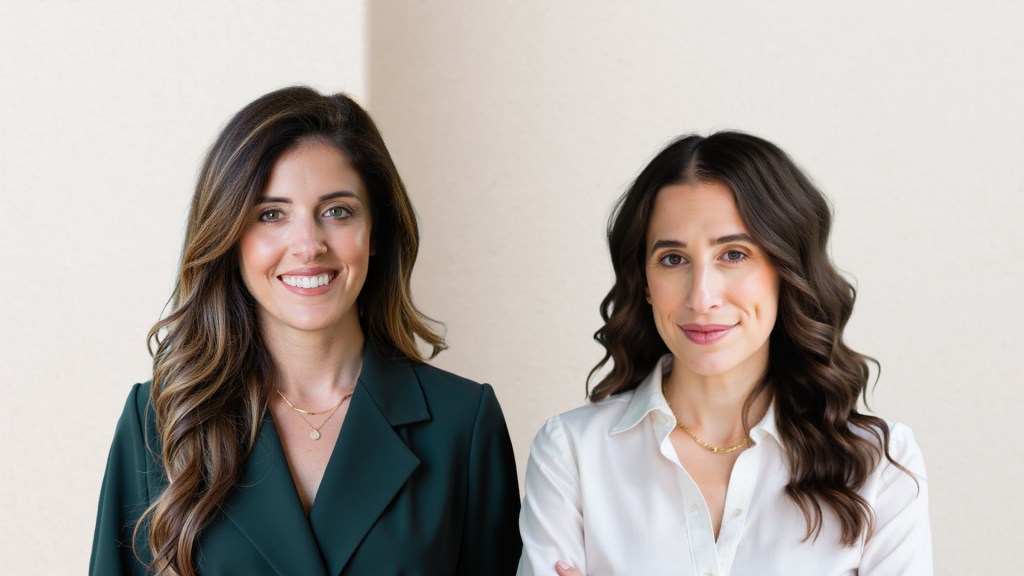In recent years, many women have chosen to delay motherhood to focus on their careers or personal development. This trend has led to a growing interest in egg freezing as a means to preserve fertility. However, the high costs associated with the procedure—ranging from $10,000 to $15,000 per cycle—have made it inaccessible for many during their prime reproductive years.
Addressing this financial barrier, Cofertility, a startup co-founded by former Uber executive Lauren Makler and health tech investor Halle Tecco, offers a groundbreaking solution. Their Split program allows women to freeze their eggs at no cost by donating half of the retrieved eggs to individuals or couples unable to conceive naturally. This model not only makes egg freezing more accessible but also provides a valuable resource for those seeking donor eggs.
The Genesis of Cofertility
The inception of Cofertility is deeply personal for CEO Lauren Makler. In 2018, she was diagnosed with a rare abdominal disease that necessitated multiple surgeries, posing a threat to her ovarian health. Faced with the potential loss of her fertility, Makler explored egg freezing and donation options. She was taken aback by the high costs and the transactional nature of the egg donation market, where factors like the donor’s ethnicity and education level could significantly influence prices. This experience inspired her to create a more ethical and accessible platform for egg donation and freezing.
How the Split Program Works
Cofertility’s Split program is designed to benefit both donors and intended parents. Women between the ages of 21 and 33 can apply to the program, undergoing comprehensive medical screenings in line with FDA and American Society for Reproductive Medicine guidelines. Once approved, the donor undergoes the egg retrieval process, with half of the mature eggs frozen for her future use and the other half donated to an individual or couple in need.
The intended parents cover all medical expenses related to the egg retrieval, as well as a 10-year storage fee for the donor’s eggs. Additionally, they pay an $8,000 coordination fee to Cofertility. This structure eliminates the traditional cash compensation to donors, reducing the overall cost for intended parents and fostering a more altruistic donation process.
Diverse and Educated Donor Pool
Cofertility has successfully attracted a diverse group of donors. Approximately 55% of their donors hold graduate degrees, and nearly half identify as people of color. This diversity addresses a common challenge in the egg donation market, where intended parents often struggle to find donors who reflect their heritage or personal preferences. By offering a broader selection, Cofertility enhances the likelihood of successful matches.
Ethical Considerations and Transparency
The traditional egg donation market has been criticized for its transactional nature, where donors are often compensated based on specific attributes, leading to ethical concerns. Cofertility’s model seeks to mitigate these issues by removing direct financial compensation to donors. Instead, donors receive the benefit of free egg freezing, while intended parents gain access to donor eggs at a reduced cost. This approach promotes a more ethical and transparent process, fostering trust and collaboration between donors and recipients.
Partnerships and Technological Integration
To ensure the highest standards in egg storage and management, Cofertility has partnered with TMRW Life Sciences. TMRW’s automated technology platform digitally identifies, tracks, monitors, and stores frozen eggs and embryos with enhanced safety and efficiency. This collaboration provides Cofertility’s members and intended parents with access to state-of-the-art storage solutions at preferred rates, further enhancing the overall experience.
Funding and Future Prospects
Since its inception, Cofertility has garnered significant investor interest. The company recently secured a $7.25 million Series A funding round led by Next Ventures and Offline Ventures, bringing its total funding to $16 million. These funds are earmarked for expanding the platform, increasing the donor and intended parent base, and enhancing technological capabilities.
Cofertility’s innovative model has the potential to reshape the fertility landscape by making egg freezing more accessible and ethical. By addressing both the financial and ethical challenges associated with egg donation and freezing, the company offers a compelling solution for women seeking to preserve their fertility and for individuals or couples in need of donor eggs.



